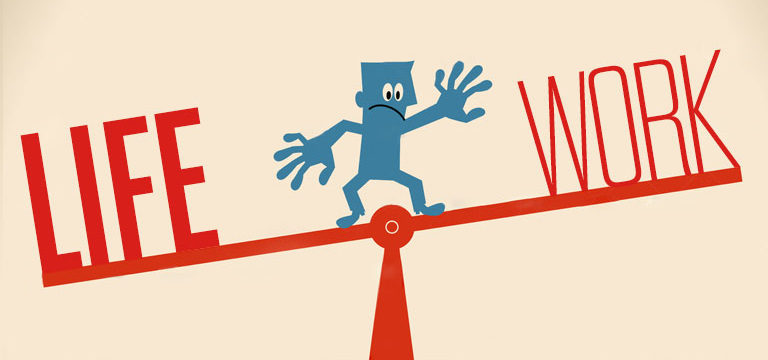It’s that time of the night again. Your shoulders and neck are in agony. You can’t get any more information in and it feels like your head is overflowing. You know you need to go home, but the tension follows you there, and is as thick as the toxic clouds from Chernobyl. If you go home now, the tension with your boss will be as radioactive as the Three Mile Island accident tomorrow. It’s a bear trap, and it’s squeezing the life out of you.
How do you know if your work life balance is out of kilter?
Our understanding of tension, pressure or conflict is not homogeneous. One person’s pressure is another’s motivator. One person’s conflict may be another’s robust debate. And the sense of this will also change depending on where our stress levels are sitting. So how do we get a reasonably objective sense whether our work-life balance is working or not? Below are seven areas which might stimulate some thoughts:
1. Are you getting lost in immersive behaviours?
This often takes the form of video games, TV, pornography, social media or smartphone use. Sometimes it’s excessive alcohol use. It even finds expression in the use of illegal substances, and other high risk behaviours.
At work, it can sit in the constant recurring internal narrative that “if I bite the bullet today, things will get better tomorrow”. Do you put off discussing your workload with your boss, telling yourself that you can cope?
How do you measure whether your activities and thoughts are healthy distractions or obsessively immersive? Its not easy to define, and perhaps the easiest test, but by no means definitive, is running the thought through your own mind that you are not going to do “it” today, and try get a sense of what you feel in “its” absence.
2. What are your relationships like?
Do you feel isolated, like you have to do it all yourself, and there’s no-one else to turn to? Who do you turn to where you can drop all your defences and recharge your sense of who you are?
It might be great having drinks with colleagues and dissing the boss but how do you feel about yourself when you are alone?
The quality of your relationships, both in and out of work, are a good indication of the status of your work-life balance.
3. How do you breathe?
Measure your breathing in the moments when you are immersed in work. Its all well and good to have superb pranayama on the yoga mat, but what’s it like the rest of the day? Is it shallow and ragged? Can you count how long it takes to inhale and exhale?
4. How much time are you taking off work?
There is a clear link between mental well-being and physical well-being. This link occurs via the autonomic nervous system. What you are thinking and feeling will reflect in your body. Too many stress-related neurotransmitters or hormones may actually damage neuronal functioning and the auto-immune system.
5. What kind of boss are you?
Are you able to get a sense of how others might be experiencing you? At times when our anxiety or stress level are heightened, we are unable to get a “read” on how our own actions might be impacting on another. There is an absence of alternatives in our thoughts of how others might be experiencing us. Whether you can enter into the process of asking yourself to contemplate what others might be thinking of you, gives a clue about your anxiety or stress levels.
6. Measure your emotional lability
How quickly do small frustrations balloon into a highly charged emotional state?
7. Can’t see the wood for the trees
Do you find yourself getting lost in the detail, or wanting to get lost in the detail? This can be anything from drilling down further and further, seeking a level of detailed information to make a “perfect” decision at work, to how unacceptable it is for the toothpaste tube to be squeezed the wrong way at home. Speculatively, it is a distortion of risk, a sense that consequences of imperfections are so great, that the smallest level of detail needs to be managed.
Final thoughts
The above list isn’t exhaustive, nor is it meant to be. Hopefully it has stimulated some thoughts and loosened up some feelings that might better indicate a problematic work-life balance.
If you would like to engage further, feel free to:
